Denison's Dogs
On a college campus, dogs are providing emotional and physical support to students and staff
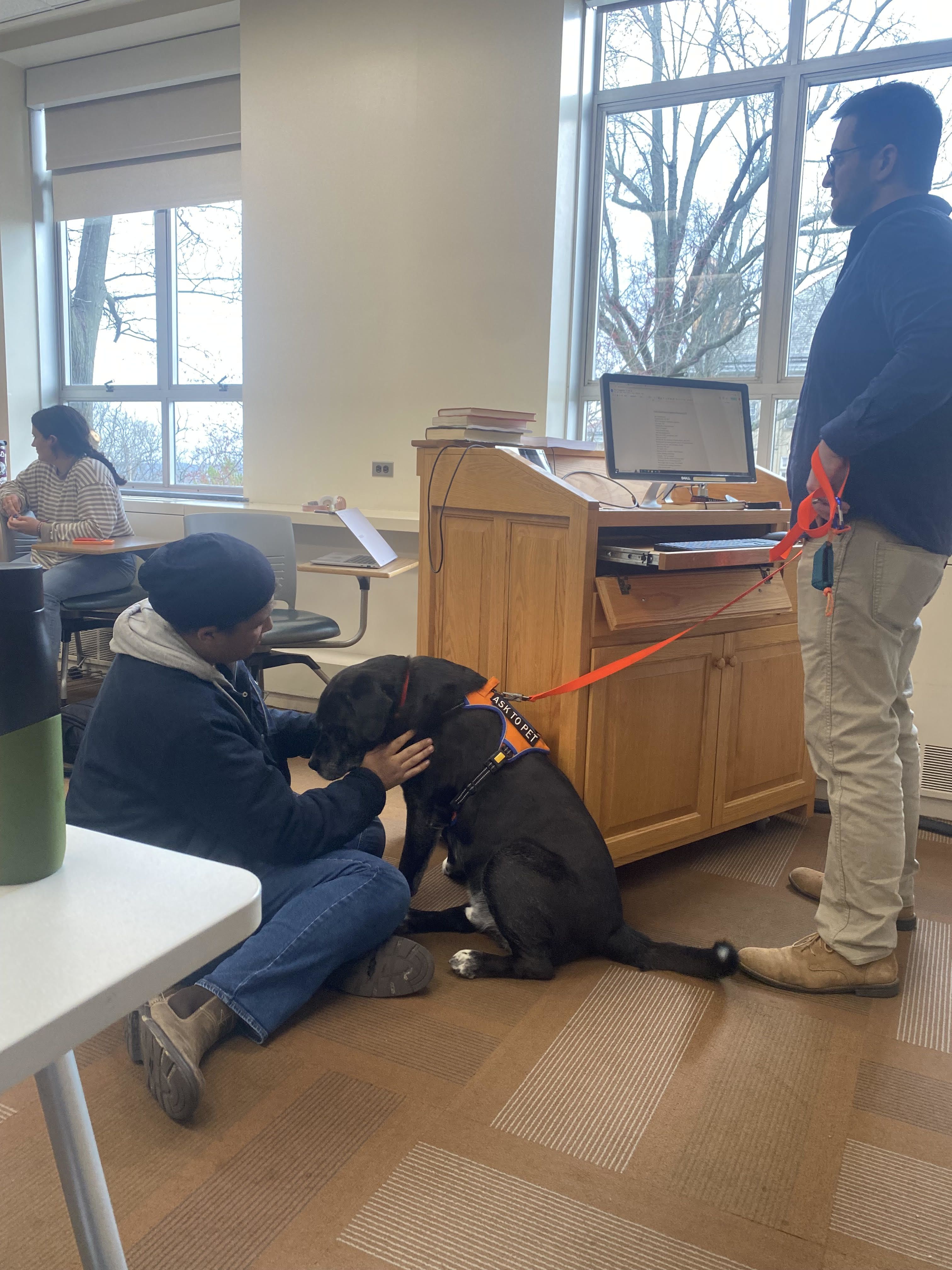
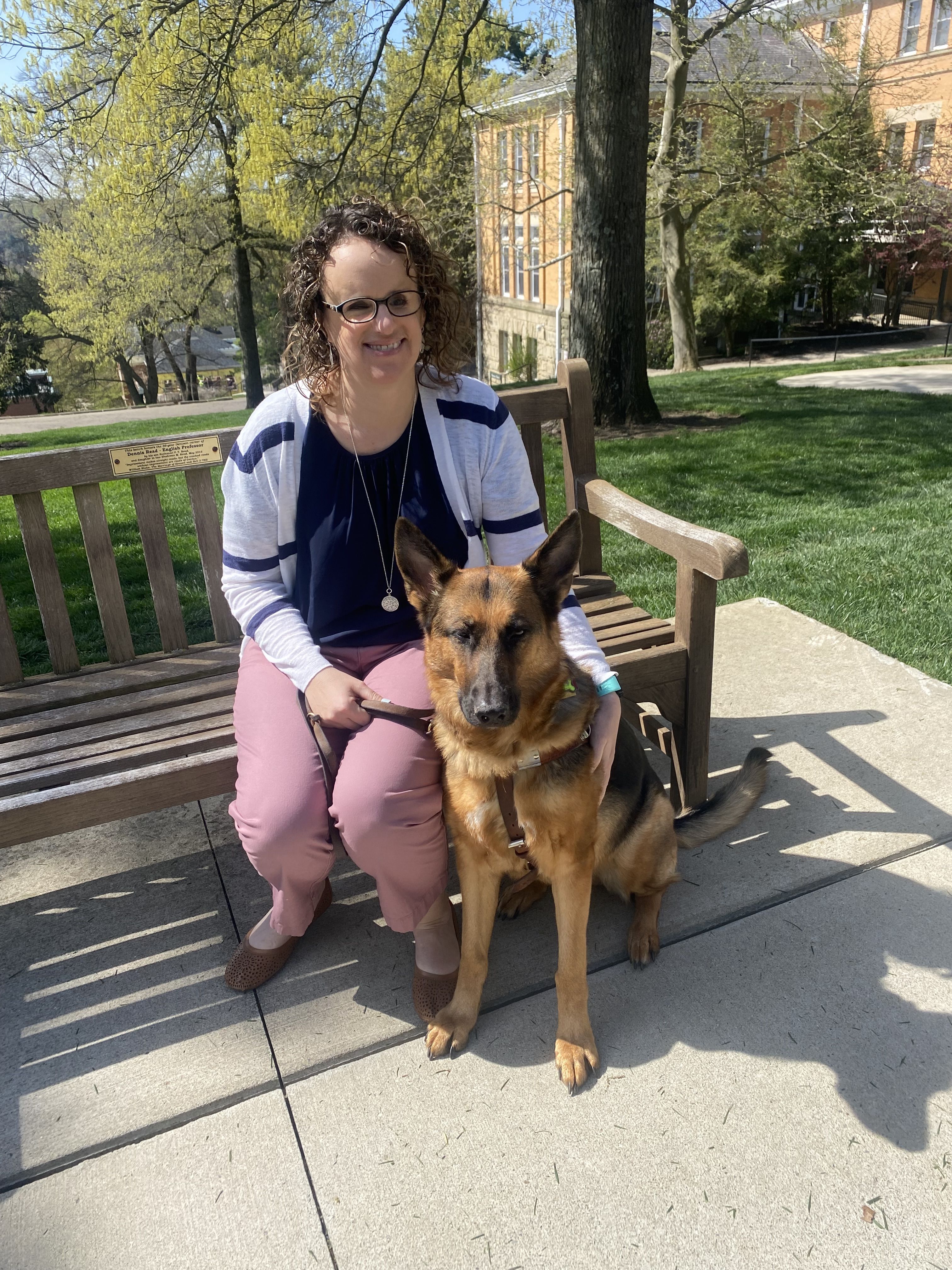
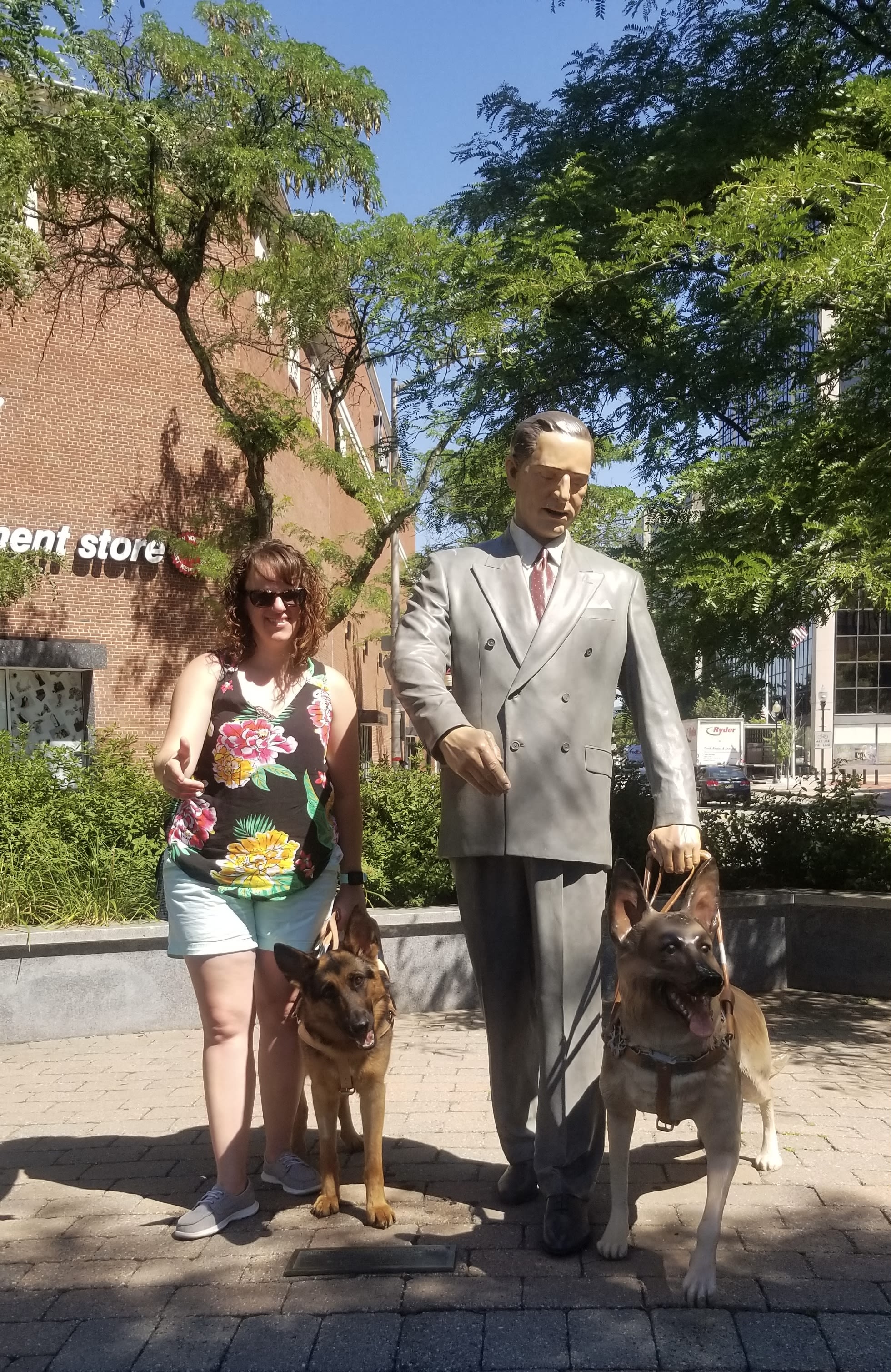
Sheila and Dr. Green at The Seeing Eye
Sheila and Dr. Green at The Seeing Eye
Nicole and Sheila
Nicole Green greets me with a smile as she arrives at her office.
“Come on in,” she says.
Her office is lined with plants, a tea kettle, and a shelf full of books – many of which are on writing. Green earned her doctorate from the University of Nebraska-Lincoln, in the field of rhetoric and composition.
For seven years she was the assistant director of UNL’s Writing Center, and now she is the director of the Writing Center at Denison University, a position she’s held since fall 2022. It’s a place where students can go and get writing help from fellow students.
She’s just arrived at Denison to begin her day. While the sunlight beams through the window, Sheila, Green’s dog, who she brings to campus every day, goes to her bed under the desk and settles in. Green calls it “her queendom.” On the floor, there is a water bowl and a little basket of toys.
Green realized she needed more help after an experience abroad. She got off at the wrong train stop, so she was trying to get across the train tracks. She couldn’t see that well because it was raining, so she walked into a concrete planter and flipped onto her back. She was hurt, stressed out, and crying.
“I said to myself, ‘Well, you have a choice, you can lay here and cry and nobody is gonna help you, or you can get up and get a dog,’” she said as she pointed to Sheila under the desk. “That’s the day I decided to get a dog.”
Sheila curls in. Green adjusts her glasses. She has low vision and, as she puts it, she sees something at 20 feet the way we would see it at 400 feet.
Green has had Sheila since 2018, after losing her first service dog two months prior. They first met at The Seeing Eye, a school for seeing-eye dogs, where Green lived for three weeks to bond with Sheila.
“It's the weirdest life experience,” she says. “It's like being at a summer camp and a nursing home all wrapped into one.
“You're there for a couple days without a dog. They assess your mobility skills and how fast you walk, and then they accept you to a class based on when they think they have a dog that is the kind you need.”
She shows me her paw print tattoo on her wrist with a braille “P” for Pumpkin, in memory of her first guide dog. She says that she knew she needed another guide dog and was excited for Sheila, but it was also a hard day for her to receive Sheila right away.
“I was excited but I had also just lost my previous dog so I was still really grieving,” she says. “I remember crying because I felt like I was betraying my dog. Sheila was, of course, just super happy and wanting to do things.“
Some students and staff at Denison have emotional support dogs. Zoe Hines, a junior, got her dog, Bentley, after a stalking incident. Listen as she shares their healing journey.
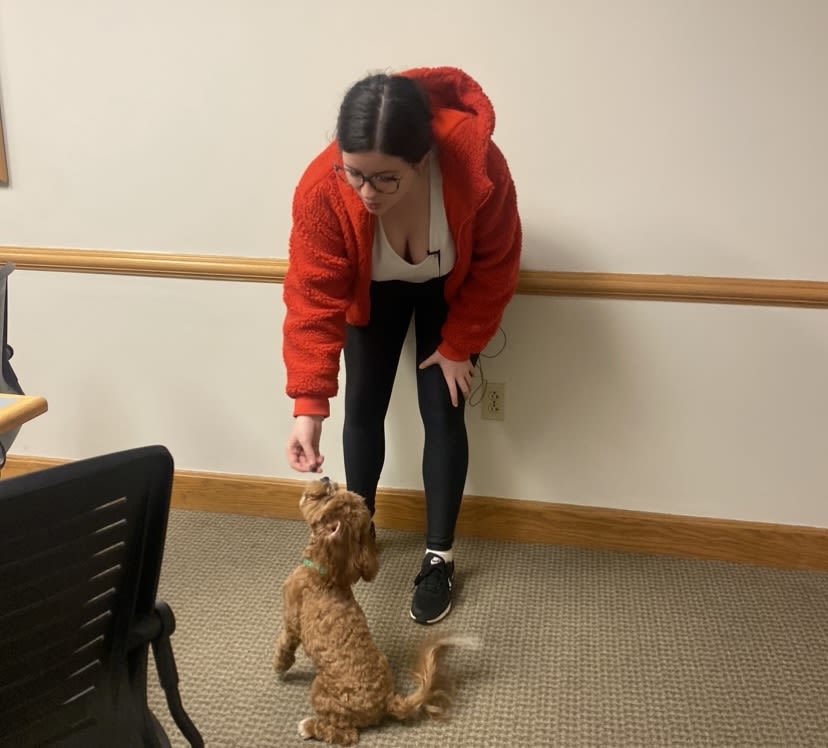
Having Sheila has helped Green focus on the things that she is passionate about rather than focusing on where she is walking.
“You don’t realize how much energy you're using to see where you're going until you have a dog and you can spend your brain energy on other things,” Green says. “My brain was working really hard and physically to constantly be aware of my surroundings, and now that I have Sheila, she takes that over for me.”
Before she came to Denison, she was on the academic job market and found that Sheila helped her focus on interviewing and getting to know potential new schools, rather than focus on whether or not she would fall.
“I was so grateful, when I visited places, to have her because if I’m walking and you’re talking, I can’t see where I'm going,” Green says. “And it's all an interview, so being able to have that conversation and not work so hard to know where I’m going is super helpful.”
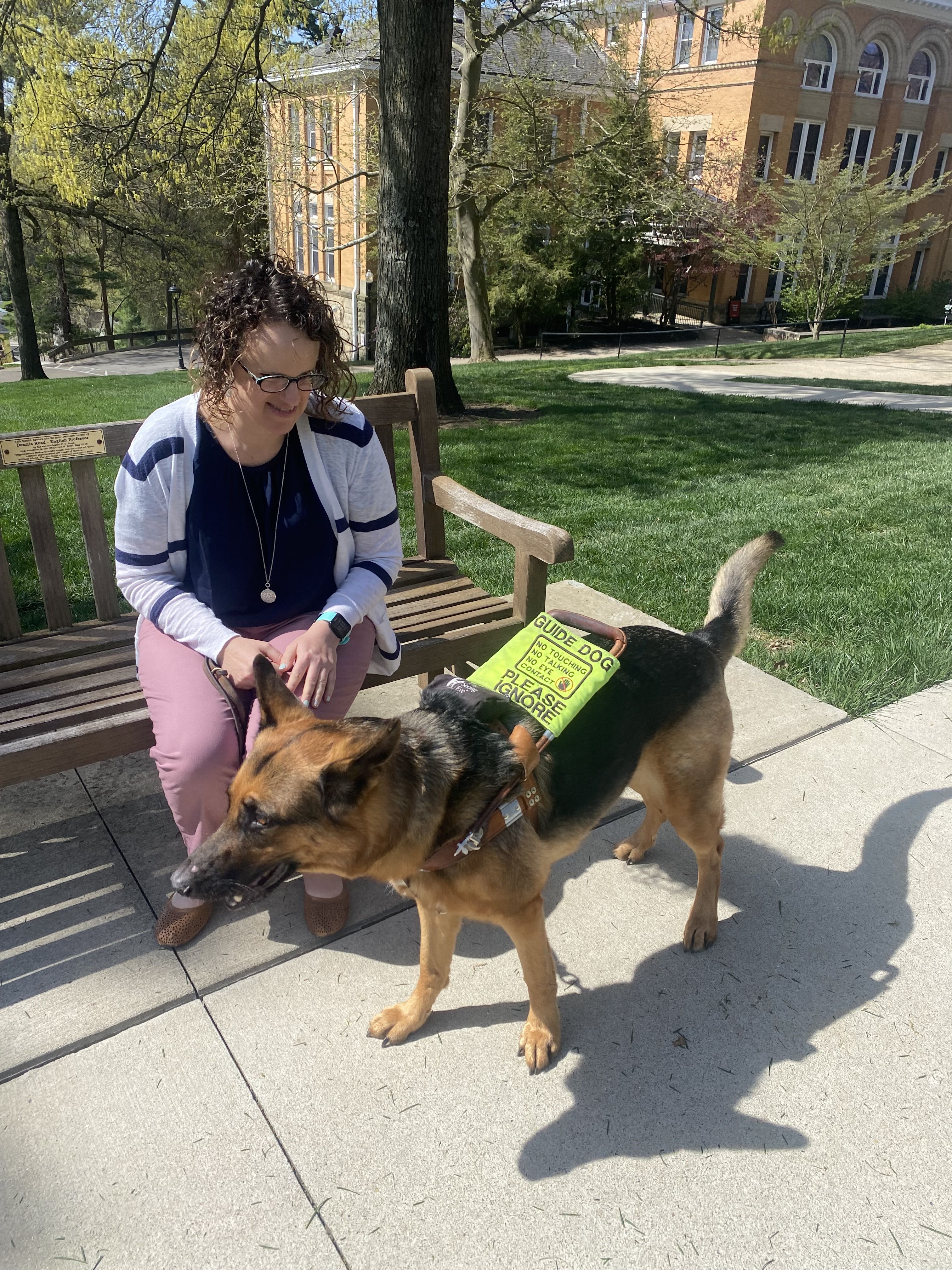
Trad Nogueira-Godsey, a religion professor at Denison, has a special connection with his dog Titan. Nogueira-Godsey is on the autism spectrum and has found that Titan helps him through his day to day life. The following minidoc shows the bond between the two.
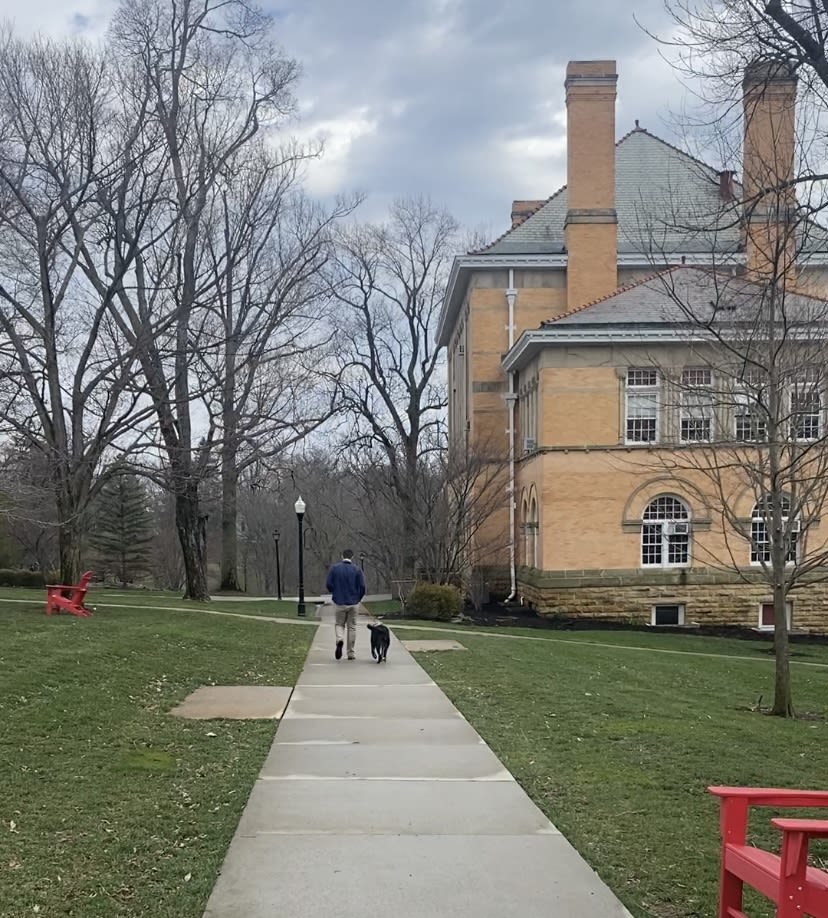
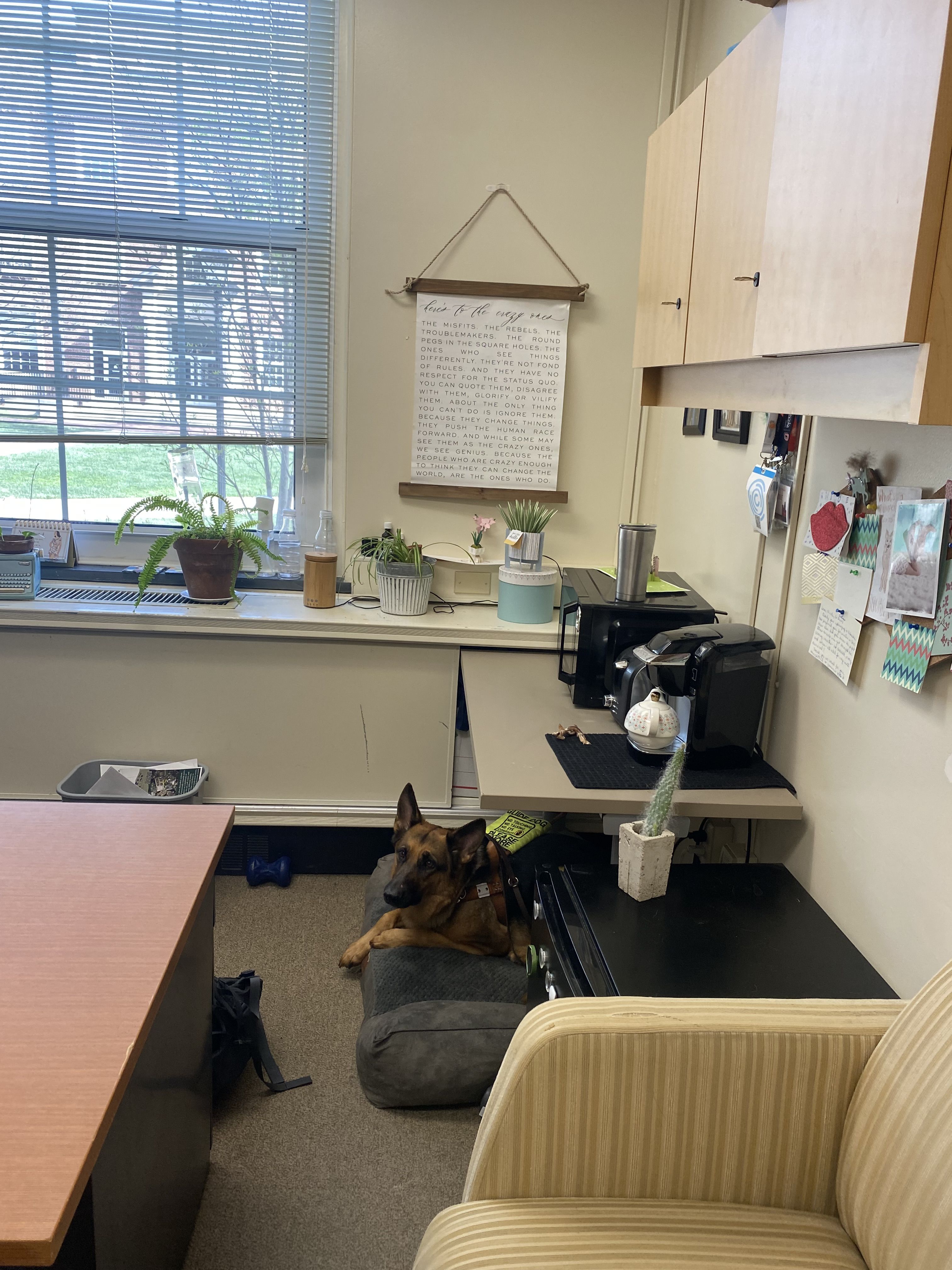
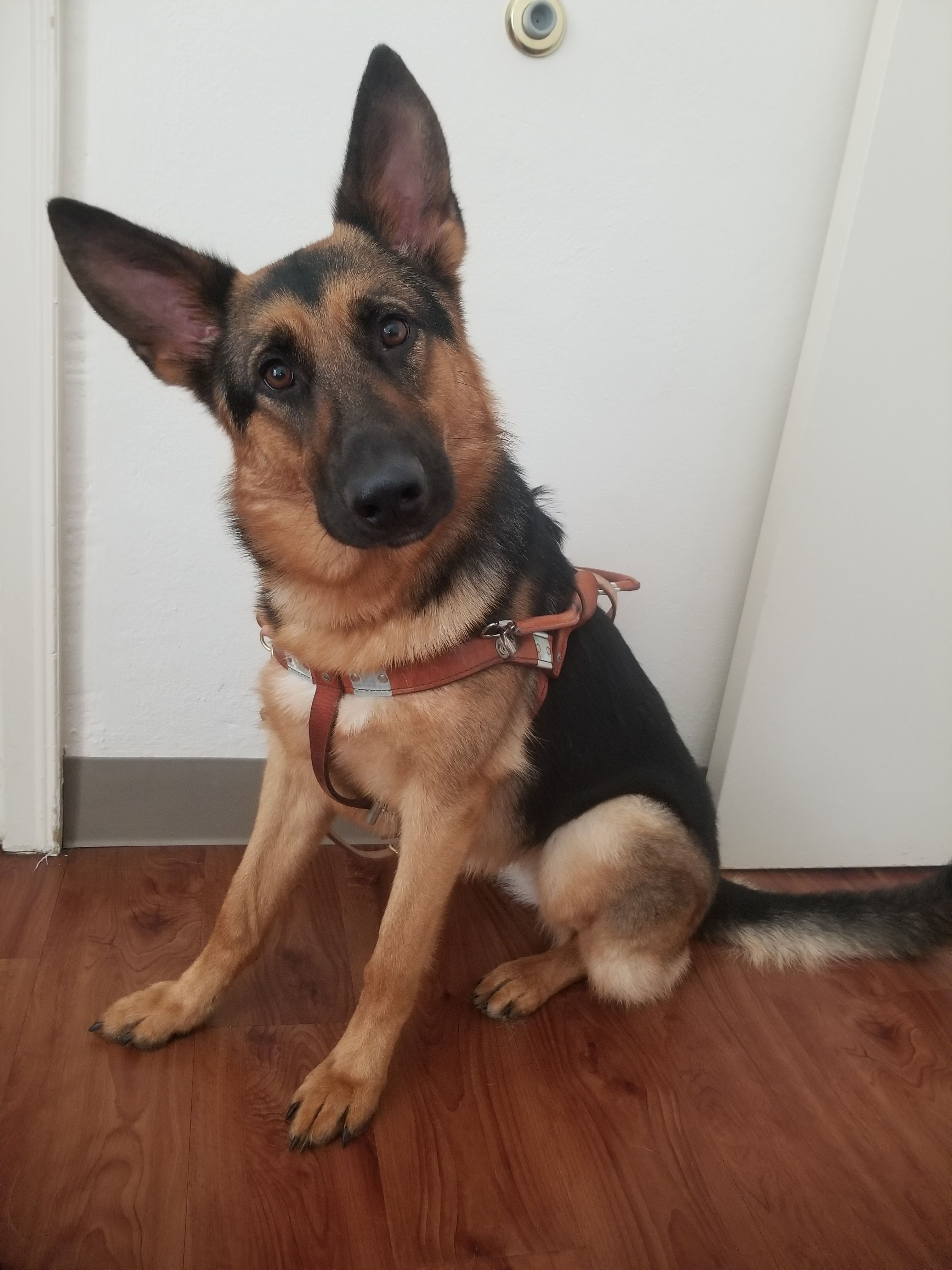
Green and Sheila have found a home at Denison, and they have even met another professor on campus with a dog. Professor Trad Nogueira-Godsey owns a therapy dog, Titan. The two professors and their dogs met at faculty orientation before the school year started.
“I was sitting down and Sheila started barking because she heard a jingle,” Green said. “She sometimes mistakes keys for the jingle of a collar, so I was telling her that there was no other dog.”
She laughs as she says: “Then when we got up to leave. I realized there was actually another dog.”
At first, she gave Nogueira-Godsey and Titan their privacy because she wasn’t sure how to interact with another working animal on campus. “I think when he and I first met, we both felt like we needed to give each other space,” she said. “We didn't talk to each other for three days because both of us didn't want to interrupt Titan or Sheila's work.”
This was her first time in a working environment with another dog so she had to adapt. She jokes that Titan is better behaved than Sheila.
“Sheila is the troublemaker,” she says.
Both professors eventually let Titan and Sheila play and they have become quick friends. “We’ve sat in the same place before so the dogs can hang out and they act like little kids and poke each other.”
Sheila’s transition to Denison has been smooth. The Americans with Disabilities Act (ADA) requires schools to permit service animals for people who need them. The only new challenge has been the many stairs on this small but hilly campus.
Sheila has made many new friends, especially with Monica in the Global Commerce department. On any given day she’ll run to Monica in the common room of the office area and be greeted with a plastic bag full of dog treats.
Green lets Sheila out of her harness and opens the office door.
“Go on, go get Monica!” she says.
Monica smiles and opens her arms wide as Sheila sprints to greet her, calling out: “Sheila, Sheila, I brought you some treats!”
After Sheila dodges one treat, Monica says with a laugh: “Oh she might not like that one!”
Green gasps: “How rude!”
Then Monica offers her something familiar: “Sheila, these are the biscuits you like!”
Green laughs as she says: “She's like a little kid: 'I just want you to taste your food.’”
Sheila has not only helped Green meet new people but also helps her share about her disability.
“When people encounter disability, they often don’t know what to do and they feel really uncomfortable,” she says, “and so their kind of gut response is ‘Oh, I'm not going to interact with that, I don’t want to do the wrong thing,’ and they just disengage.”
“But people’s love of dogs overwhelms the part of their brain that says that's weird, I don't want to interact with that. So puppy wins out over their discomfort. They’ll start conversations because a dog is a good conversation starter.”
Green and Sheila spend almost every day together. They have gone hiking, on a cruise, and rock climbing together. Most recently, they joined the staff of the Writing Center at a bowling alley.
“She's my other half,” Green said. “If I cry, she's there climbing on top of me. We know each other better than anyone else. We are a team; we are a unit: we are Nicole and Sheila.”
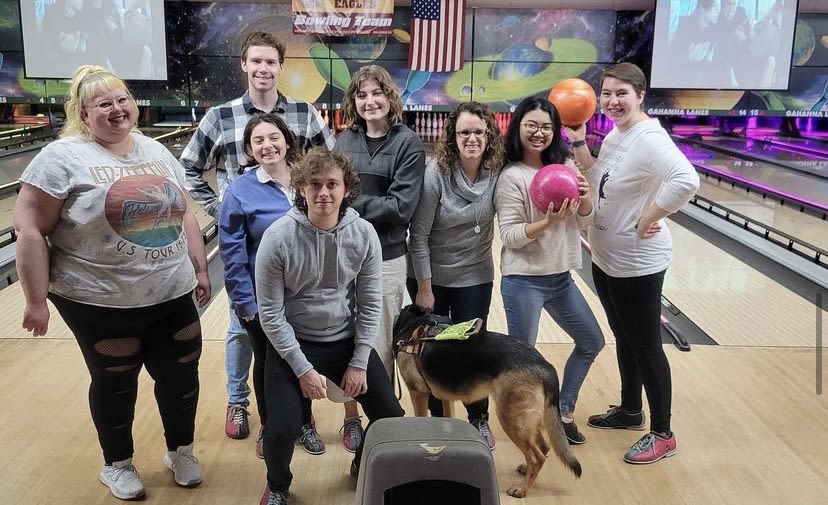
Staff outing at a bowling alley from the Writing Center Instagram
Staff outing at a bowling alley from the Writing Center Instagram
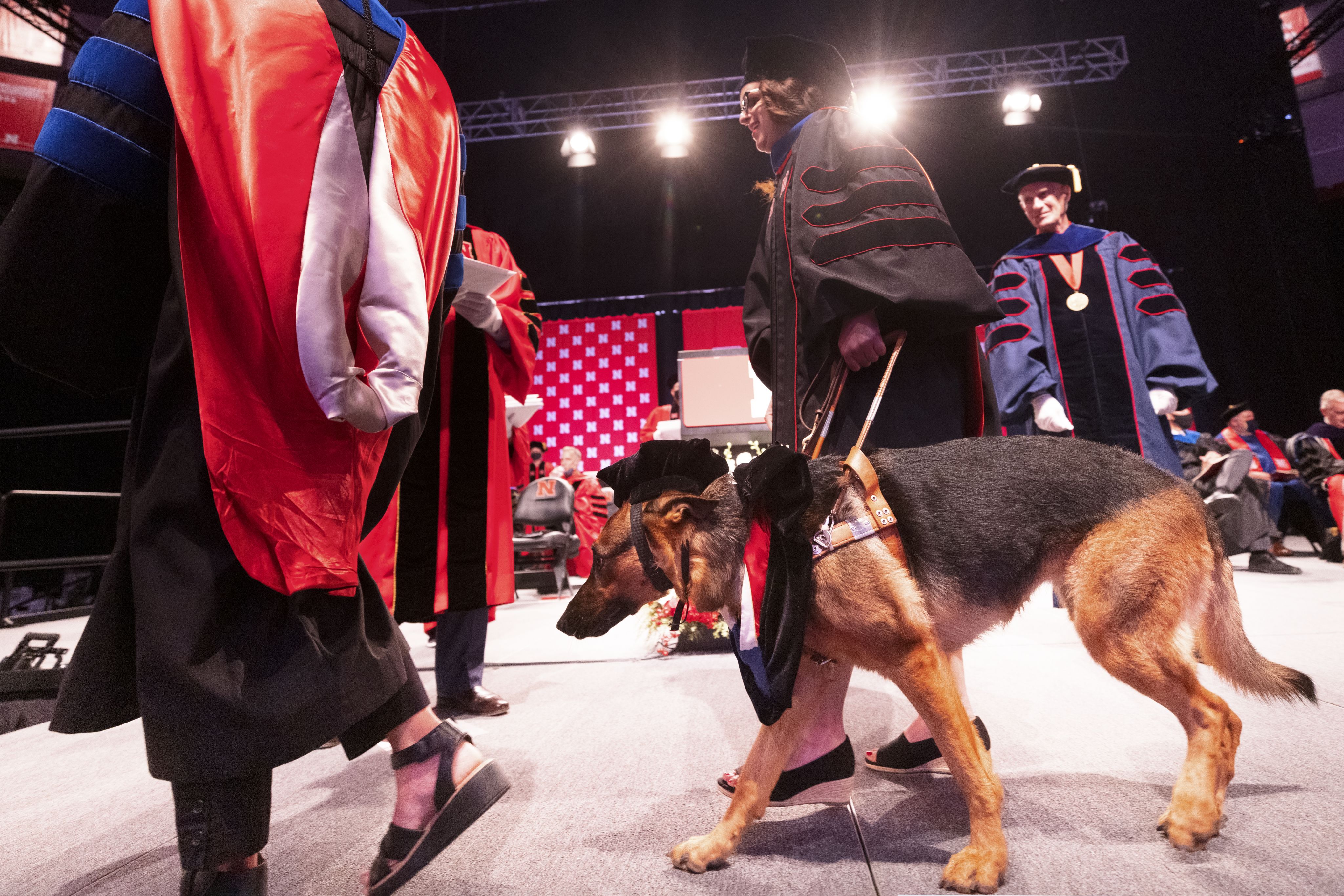
Sheila with Dr. Green at her PhD Commencement
Sheila with Dr. Green at her PhD Commencement
